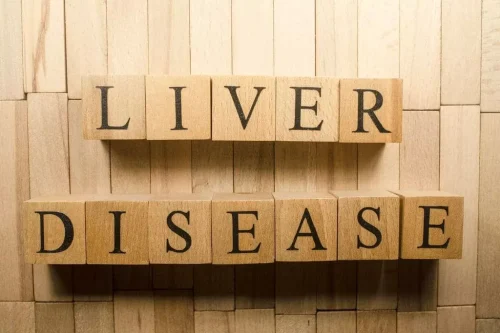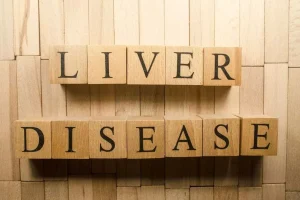
Blood clots formed in the heart can travel to the brain, causing a stroke. However, AFib may not always be detectable in initial tests, especially if it occurs intermittently. Your heart deserves the best care, especially when managing blood pressure alcohol. Schedule your appointment with Avicenna Cardiology and let our expert team guide you toward a healthier, stronger heart. Whether you’re managing existing conditions or looking to prevent future risks, we’re here to help every step of the way. The UK Chief Medical Officers advise against drinking more than 14 standard drinks per week to minimize health risks, including high blood pressure alcohol and cardiovascular disease.
Alcohol Instead of Blood Thinners?

Long-term monitoring is often required to identify AFib in cryptogenic stroke patients. This condition highlights the need for ongoing surveillance and patient education about recognizing symptoms such as palpitations or shortness of breath, which could indicate AFib. Ischemic strokes occur when the blood supply within the brain is blocked, while hemorrhagic strokes occur when a blood vessel bursts, causing bleeding within or surrounding the brain. Although the precise causes of most ischemic and hemorrhagic strokes can be identified, diagnostic tests and imaging are unable to pinpoint a clear cause in cases of cryptogenic stroke. Cryptogenic strokes are diagnosed when all other potential causes have been ruled out through extensive testing.
- Even moderate alcohol consumption can cause short-term increases in blood pressure readings.
- Joining support groups can offer patients valuable opportunities to share experiences and advice with others who have undergone similar challenges.
- HDL is considered “good” cholesterol while LDL is classified as “bad” cholesterol, a buildup of which can be a contributing factor in a heart attack.
- Physical therapy focuses on restoring movement and strength in affected limbs.
- An occasional drink or even moderate drinking throughout the week is okay.
Cryptogenic Stroke Final Thoughts

Ultimately, anyone who is taking any kind of blood-thinning medication should speak with their doctor before mixing it with alcohol. The different risks that are present will vary based on each individual, and someone who has not spoken with their doctor can have risks they don’t know about. Blood thinners can be dangerous by themselves as well, making it essential to seek medical advice when symptoms or potential concerns arise. Eliquis is a common blood thinner that does not require routine blood tests like some anticoagulants do. Using alcohol with Eliquis can increase the risk of internal bleeding, so alcohol use should be limited. Therefore, a person should speak with a healthcare professional about whether it is safe for them to drink alcohol while taking medications.

General Health
Call your doctor right away if you have any unexplained bleeding or bruising, nausea or vomiting, blood in your urine or stools, headache, dizziness, or weakness. Calls to our general hotline may be answered by private treatment providers. We may be paid a fee for marketing or advertising by organizations that can assist with treating people with substance use disorders. Heavy alcohol drinking while taking clopidogrel can cause ulcers and irritate the stomach. If you or a loved one is struggling with alcohol abuse, please call our helpline today.
Interactions Between Alcohol and Blood Thinners
It’s important to consult with a healthcare provider to understand the specific interactions between alcohol and the prescribed blood thinner medication. When combining alcohol and blood thinner medication, there are several risks and considerations to keep in mind. Alcohol can increase the risk of bleeding, as it affects platelet function and can interfere with proper blood clotting. This can lead to prolonged bleeding or difficulty in stopping bleeding after an injury or surgery. Yes, reducing alcohol consumption can help lower blood pressure, particularly if you’ve been drinking heavily or regularly. Cutting back on alcohol also reduces the risk of related health issues, such as stroke, heart attack, and heart failure.

American Heart Association
- While moderate alcohol use does have a blood-thinning effect, using alcohol specifically to thin your blood or have a healthier heart is not recommended.
- Follow the guidelines for moderate drinking, which typically means no more than one drink per day for women and two drinks per day for men.
- Over-imbibing can affect how quickly your blood clots and can increase your chances of falling.
- Avoiding the combination of blood thinners and alcohol is much more difficult for those addicted to alcohol.
If you are taking blood thinners, it is is alchohol a blood thinner important to prioritize moderation and responsible drinking. Monitoring for signs of bleeding, such as unexplained bruising or prolonged bleeding, is also essential. If you experience any unusual symptoms, promptly seek medical attention. In addition to platelet function, alcohol can also influence blood clotting factors. Blood clotting factors are proteins in the blood that play a role in the formation and dissolution of blood clots.
Eliquis (apixaban) and Alcohol
When combined with blood thinners, alcohol consumption can increase the risk of bleeding and potentially impact medication effectiveness. It’s important to note that the increased risk of bleeding varies depending on the type and dosage of the blood thinner, as well as the amount of alcohol consumed. For example, alcohol consumption may have a more pronounced effect when combined with certain blood Sober living house thinners like warfarin. To understand the specific interactions between alcohol and your prescribed blood thinner, it’s crucial to consult with your healthcare provider or refer to reliable sources.
Adverse Side Effects of Blood Thinners
- Over time, poor sleep can have a greater effect on your mental and physical health, so it’s important to consider how alcohol might be impacting your sleep.
- Taking both together could compound the anticoagulant effect and increase your risk of bleeding.
- It is crucial to consult with a healthcare provider to understand the potential interactions between alcohol and specific blood thinners.
- You consent to receive SMS notifications and promotions from Addictionresource.
You’ll get an email weekly with any new questions https://ecosoberhouse.com/ answered by this doctor. Since you’re not logged in, check your email after you submit to confirm. With thinner blood, you may also experience more nosebleeds as well as more bleeding of gums when brushing your teeth.
Speech Therapy
Doing anything that can make you bleed is something to seriously consider not doing if you’re on a blood thinner. That means contact sports like hockey, soccer or football, or ones that pose a serious risk of injury if you fall (like skiing, gymnastics or ice skating) are best put on the sidelines. Addiction Resource does not offer medical diagnosis, treatment, or advice. Only trained and licensed medical professionals can provide such services.

0 commentaires